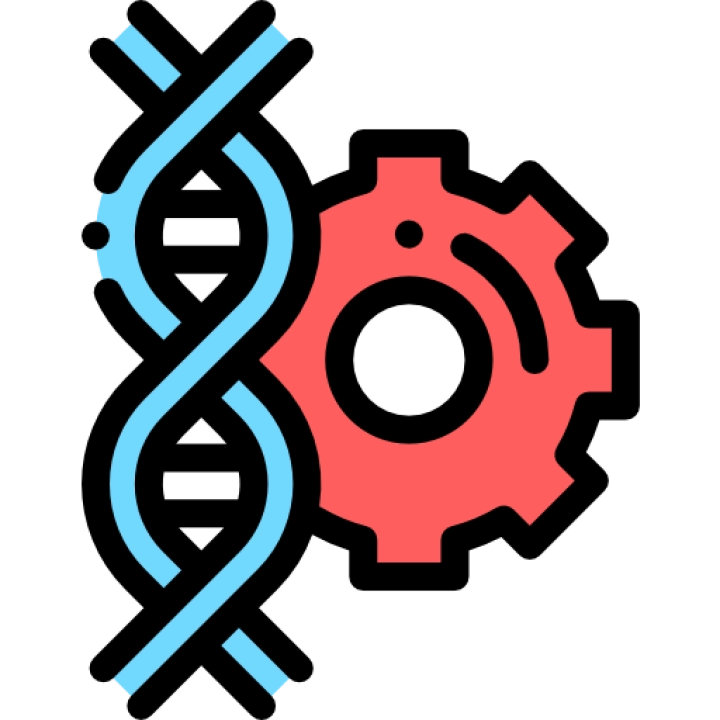Faculty: Graduate School of Health Sciences
This specialty focuses on the interdisciplinary field of tissue engineering and regenerative medicine, aimed at restoring, maintaining, or enhancing the functions of tissues and organs.
Students acquire skills in biomaterials, cell biology, biomechanics, bioreactors, and clinical applications, preparing for careers in biomedical research, healthcare, biotechnology, and related fields.
Learning Objectives:
- Understand the principles of tissue engineering and regenerative medicine.
- Develop skills in biomaterials and scaffold design.
- Learn cell biology and stem cell techniques.
- Explore biomechanics and bioreactor systems.
- Analyze clinical applications and translational research.
- Develop critical thinking, problem-solving, and experimental design skills.
- Understand the ethical considerations and regulatory affairs in tissue engineering.
Main Curriculum:
- Introduction to Tissue Engineering and Regenerative Medicine
- Overview of tissue engineering, regenerative medicine principles, and industry trends.
- Biomaterials and Scaffold Design
- Principles of biomaterials, scaffold manufacturing, and tissue-specific designs.
- Cell Biology and Stem Cell Techniques
- Understanding cellular mechanisms, and stem cell isolation, differentiation, and applications.
- Biomechanics
- Principles of biomechanics and their applications in tissue engineering and regenerative medicine.
- Bioreactors and Tissue Cultivation
- Design and operation of bioreactors for tissue cultivation and organ engineering.
- Clinical Applications and Translational Research
- Translating tissue engineering research into clinical applications and therapies.
- Ethical Considerations and Regulatory Affairs
- Ethical issues, regulatory compliance, and safety considerations in tissue engineering and regenerative medicine.
- Advanced Tissue Engineering Techniques
- Emerging technologies such as 3D bioprinting, nanotechnology, and gene editing in tissue engineering.
- Practical Training
- Hands-on experience in tissue engineering and regenerative medicine settings, such as research labs, biotech companies, or healthcare institutions.
- Graduation Project
- A comprehensive project applying skills in tissue engineering and regenerative medicine, such as designing a biomaterial scaffold, conducting stem cell research, or creating a clinical application plan.
Assessment Methods:
- Biomaterial and scaffold design projects, cellular biology and stem cell technology studies, biomechanics analyses, bioreactor and tissue cultivation reports, clinical applications and translational research plans, ethical considerations and regulatory articles, advanced tissue engineering technology presentations, internship reports, graduation projects, group projects, and presentations.
Recommended Textbooks:
- "Introduction to Tissue Engineering and Regenerative Medicine" by various authors.
- "Biomaterials and Scaffold Design" by various authors.
- "Cell Biology and Stem Cell Techniques" by various authors.
- "Biomechanics" by various authors.
- "Bioreactors and Tissue Cultivation" by various authors.
- "Clinical Applications and Translational Research" by various authors.
- "Ethical Considerations and Regulatory Affairs" by various authors.
- "Advanced Tissue Engineering Techniques" by various authors.
Prerequisites:
Basic knowledge of biology, chemistry, and physics, with an interest in biomedical engineering and regenerative medicine.
Duration of the Specialty:
Typically, 4 years for a bachelor's degree or 2 years for a master's degree in tissue engineering and regenerative medicine.
Certification:
Although there are no specific certifications for tissue engineering and regenerative medicine, graduates may earn other academic qualifications such as a PhD in biomedical engineering, tissue engineering, or related fields. Professional certifications in specific areas such as biomaterials or biotechnology may also be relevant.
Target Audience:
Aspiring biomedical engineers, tissue engineers, regenerative medicine specialists, research scientists, and professionals seeking careers in biomedical research institutions, healthcare facilities, biotechnology companies, pharmaceutical industries, and related fields.
This specialty equips students with the interdisciplinary skills necessary to excel in tissue engineering and regenerative medicine, supporting careers in various roles within biomedical research, healthcare, and biotechnology.

